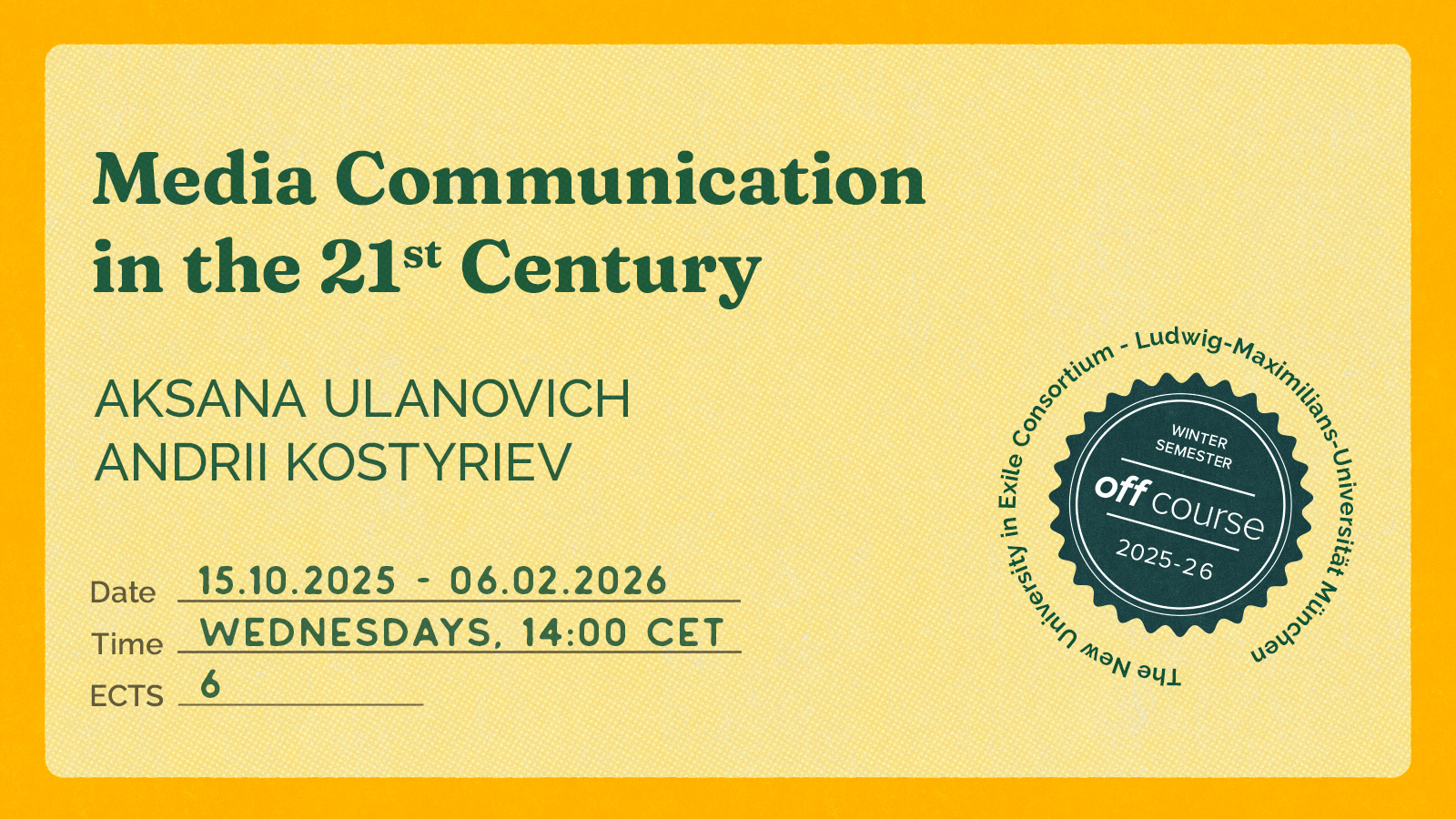
In the current world, where information appears as the main value, the discourse about the media’s role and place in socio-political processes is a cornerstone both for theorists – political scientists, sociologists, legal scholars, psychologists – and for practitioners – politicians, editors, journalists, bloggers – as well as for an engaged public. The question of how media can support democratic processes and foster communicative discourse, while avoiding manipulation and oppression, has become urgent due to the rapid evolution of online platforms.
The optimistic 1990s vision of the Internet as a catalyst for direct democracy has, since 2016, given way to warnings that social media “steal elections” and create distorted realities through fake news and emotionally charged propaganda. These challenges are particularly acute for societies in democratic transition, striving for liberation, sovereignty, and sustainable public trust.
This 14-week seminar course is designed as an interdisciplinary dialogue between scholarship and practice. Students will engage critically with theory and current events, exploring themes such as the essence of political communication, media power, the watchdog–chain dog dilemma, post-truth networks, and the aesthetics and rhetoric of political media. Through discussion, debate, and collaborative research, we will uncover the techniques, tactics, and means by which media shape – and are shaped by – democratic and authoritarian contexts.
The course moves from foundational theories of information and communication to advanced explorations of network society, post-politics, and post-truth realities, culminating in student-led presentations that synthesize and apply the insights gained.
- Teacher: Andrey Kostyrev
- Teacher: Aksana Ulanovich